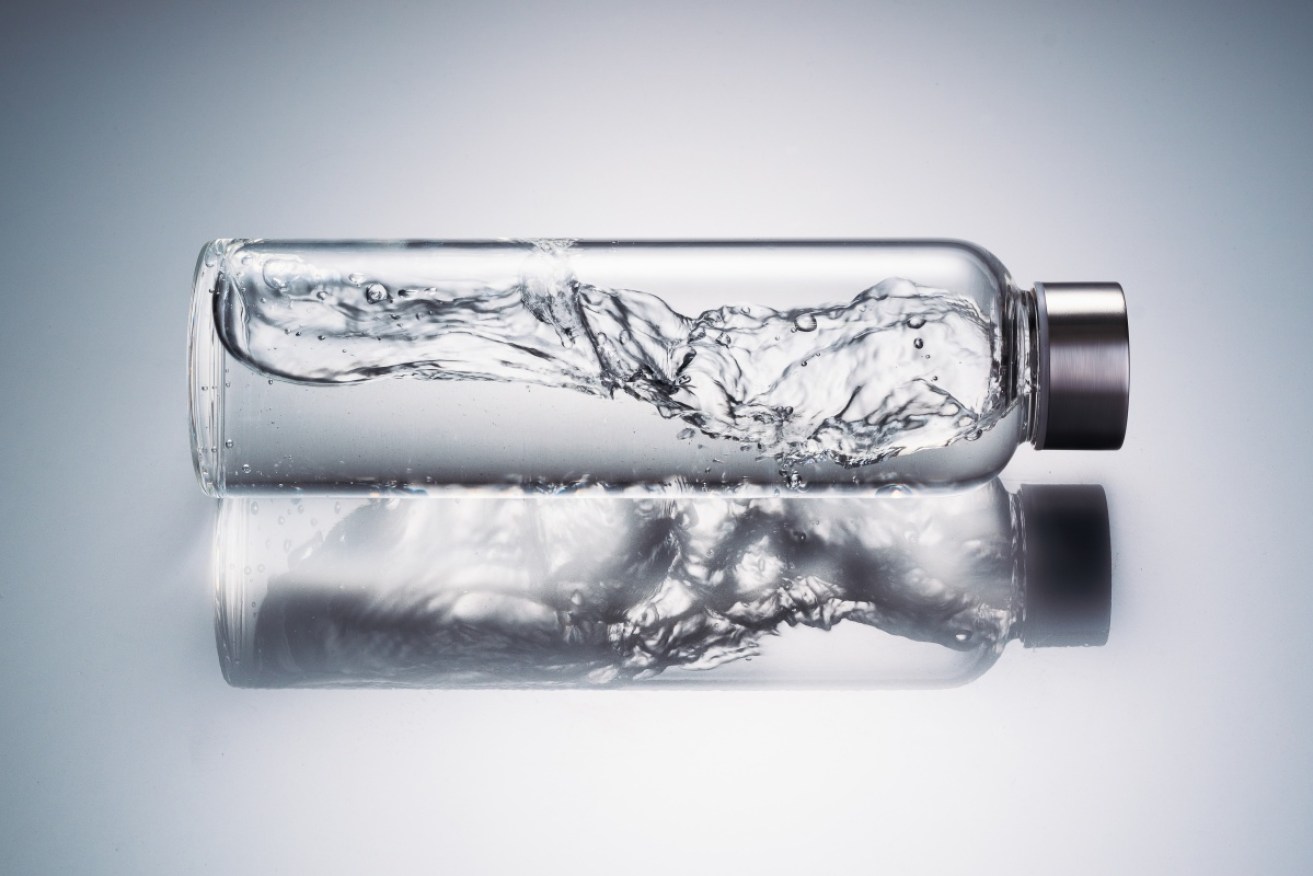Are we consuming too much water?


Is it possible to drink too much water? Photo: Getty
If ‘award-winning’ designer glass water bottles and hydration apps are anything to go by, we’re pretty concerned with our water intake.
In a deluge of health messages to “drink plenty of water” and to make sure we drink “eight glasses per day”, is it possible to actually drink too much?
Henry Valtin, of the Department of Physiology at the Dartmouth Medical School in New Hampshire, has looked through peer-reviewed literature in modern electronic databases, printed literature and consulted numerous nutritionists to see if “eight glasses a day” had any scientific basis.
“He also consulted with nutritionists who specialised in the fields of ‘thirst’ and the ‘drinking of fluids’,” ABC science journalist, Karl Kruszelnicki, better known as ‘Dr Karl’ wrote.
“In all of his research, he found no evidence to support drinking eight glasses of water per day,” Dr Kruszelnicki said.
Melbourne-based dietitian Sarah Lueng told The New Daily six to eight glasses of water per day was often recommended, but the magic number for optimum hydration was “based on nothing”.
“I always tell my clients fluid requirements are quite different depending on whether they are active, not active, a heavy sweater or not,” Ms Lueng said.
“If you sweat heavily, you need to drink more to replenish your body.”
The dietitian said it was “rare” to be “over-hydrated” – estimating five to 10 litres of water could be too much – but also warned drinking too much water could be a sign of diabetes or another medical condition.
Some groups, such as those using beta-blockers or recovering from heart surgery, needed to consult a specialist about their water consumption, she noted.
Ms Lueng said one of the best indicators of adequate hydration was urine colour and frequency of urination.
If urine is a deep-yellow colour, similar to the colour of beer, you are dehydrated. On the other hand, pale-yellow or clear urine indicates you are more hydrated, she noted.
“Try to put in a routine. Drink water first thing in the morning when you wake up, drink before or after a meal and create other habits, rather than drink when you’re thirsty,” Ms Lueng said.
University of Canberra dietitian-in-residence Caroline Salisbury told The New Daily the sensation of thirst could be a poor indicator of fluid requirements and may be affected by a number of factors: individual and environmental temperatures, age, saliva production, medications, usual fluid intake and hot weather.
Ms Salisbury said dietitians generally used the guide for healthy adults of 35 millilitres of water per kilogram of body weight per day. For example, a 60-kilogram woman has a fluid requirement of about 1.9 litres of water per day but that is all fluids in food and drinks, not just water.
The high-risk groups for dehydration are those with poor cooling, low blood volume and reduced kidney function,and they need to be aware of maintaining their fluid intake across the day.
“It’s unlikely we are consuming too much water or fluid in the majority of cases. There are some groups who risk over consuming fluids if intake is many litres above their requirements which place then at risk of hyponatremia, or low blood sodium.
If you’re feeling overwhelmed by the water quota, the dietitian suggested including other drinks, such as tea, juice and coffee as well as moist fruits, vegetables and soups.
“Usually people won’t over-consume water or fluids, and dehydration is a more common risk with the outdoor worker, elderly, young and unwell in the hot weather,” Ms Salisbury said.
“It’s generally a good idea to set up habits including using a clear water bottle and keeping jugs of water on the bench,” she said.








